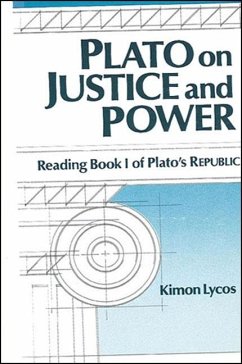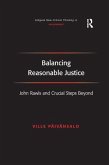Most commentaries on the Republic rush through Book I with embarrassment because the arguments of the participants, including Socrates, are specious. Beginning with Book II, the arguments are brilliant, so why did Plato write Book I? Lycos shows that the function of Book I is to attack the view that justice is external to the soul--external to the power humans have to render things good--and is merely instrumental to a good society. The dramatic situation in Book I presents justice as internal, requiring not laws, but discrimination and virtue. After this introduction, the rest of the Republic serves to sketch out what virtue is and how to practice discrimination. Plato on Justice and Power ends with some illuminating contrasts between this sense of virtue and that characteristic of our modern liberal politics which takes an external view of justice similar to the Athenians view at the time of Plato.
Bitte wählen Sie Ihr Anliegen aus.
Rechnungen
Retourenschein anfordern
Bestellstatus
Storno








![Legal Ethics [microform]: Address by the Hon. T.G. Mathers, Chief Justice of the Court of King's Bench, Manitoba, to the Manitoba Bar Associatio Legal Ethics [microform]: Address by the Hon. T.G. Mathers, Chief Justice of the Court of King's Bench, Manitoba, to the Manitoba Bar Associatio](https://bilder.buecher.de/produkte/66/66184/66184822m.jpg)